
by David Levinson
Protecting the environment
Americans are becoming increasingly concerned about the environment. Smog and litter have been common complaints for many years, but people are now paying attention to things like pesticides and other chemicals in the ground and water. Some say that the current attention began with Rachel Carson’s Silent Spring in 1962, but 1969 may have been the tipping point.
Last year began with the disastrous oil spill off the coast of Santa Barbara, California. A few months later, the Cuyahoga River in Ohio caught fire (and not for the first time). The mayor of Cleveland tried unsuccessfully to use it as a springboard for cleaning up the river, but Time magazine picked up the story and used pictures of the more dramatic 1952 fire to launch its new “Environment” section. As the year drew to a close, the environment was also the subject of several papers presented at the Fall Meeting of the American Geophysical Union. All of which contributed to the massive participation in Earth Day back in April.
The government has noticed and begun to take action. Back in December, Congress passed the National Environmental Policy Act, which requires federal agencies to submit a report on the effects of planned projects on the environment. President Nixon signed it on New Year’s Day, declaring, "the 1970s absolutely must be the years when America pays its debt to the past by reclaiming the purity of its air, its waters, and our living environment." The Nixons even participated in Earth Day by planting a tree on the South Lawn of the White House.
One of the problems is that there are dozens of government agencies overseeing various aspects the environment and environmental policy. Sometimes they work at cross purposes or their goal is at odds with protecting the environment at large. For example, the bodies that oversee the approval of pesticides or fertilizers are concerned only with the improving crop yields, not with the larger effects on insect life or algal blooms far downstream of farms.
On July 9th, President Nixon submitted Reorganization Plan No. 3 to Congress. The plan proposes the creation of an Environmental Protection Agency into which all the various departments and agencies will be folded. The goal is to create concerted action, unified monitoring, and hopefully to eliminate conflicts of interest. This actually seems like a pretty good idea. It’s now up to Congress to approve or reject this reorganization.
 The Nixons participating in Earth Day.
The Nixons participating in Earth Day.
Taking the science out of science fiction
I’m not one to indulge in all the shouting about the Old School and the New Wave. Eventually, the two will reach a balance, and something new will emerge. The focus on character and society is all to the good; the fripperies of style over substance will soon be forgotten. But some of the stories in this month’s IF are enough to make me throw up my hands in despair and join the old guard in kvetching about what the New Thing is doing to science fiction.
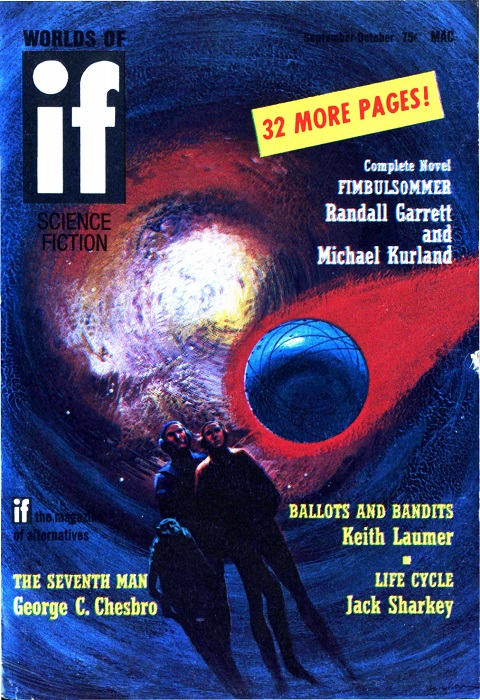 Suggested by “Fimbulsommer.” Art by Gaughan.
Suggested by “Fimbulsommer.” Art by Gaughan.
Continue reading [August 2, 1970] Fimbulsommer (September-October 1970 IF)

![[August 2, 1970] Fimbulsommer (September-October 1970 <i>IF</i>)](https://galacticjourney.org/wp-content/uploads/2025/07/IF-1970-09-Cover-480x372.jpg)
![[July 2, 1970] Matters of conscience (August 1970 <i>Venture</i>)](https://galacticjourney.org/wp-content/uploads/2025/06/Venture-1970-08-Cover-486x372.jpg)
 Some of the occupiers a few days after arriving on Alcatraz.
Some of the occupiers a few days after arriving on Alcatraz.![[June 4, 1970] Something old, something new (July-August 1970 <i>IF</i>)](https://galacticjourney.org/wp-content/uploads/2025/06/IF-1970-07-Cover-472x372.jpg)
 La Balsa puts to sea.
La Balsa puts to sea. The Ra II under way. Note the tether keeping the stern high.
The Ra II under way. Note the tether keeping the stern high.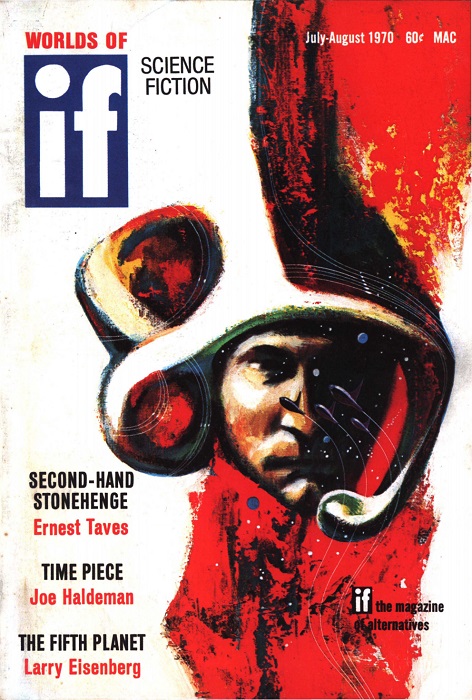 Suggested by “Time Piece”. Art by Gaughan
Suggested by “Time Piece”. Art by Gaughan![[May 2, 1970] Gaudy Shadows in the Crystal Cave (May 1970 Galactoscope)](https://galacticjourney.org/wp-content/uploads/2025/05/700502covers-672x372.jpg)

![[April 14, 1970] Take this spaceship to Alpha Centauri (May 1970 <i>Venture</i>)](https://galacticjourney.org/wp-content/uploads/2025/04/Venture-1970-05-Cover-475x372.jpg)

 You probably know who most of these people are.
You probably know who most of these people are.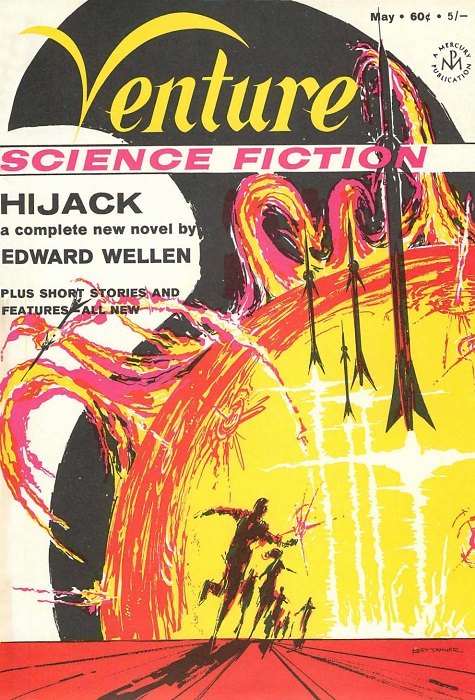 I’m still not sold on Tanner’s covers, but this one is better than most. Art by Bert Tanner
I’m still not sold on Tanner’s covers, but this one is better than most. Art by Bert Tanner![[April 2, 1970] Being Human (May-June 1970 <i>IF</i>)](https://galacticjourney.org/wp-content/uploads/2025/03/IF-1970-05-Cover-472x372.jpg)

 Archbishop Makarios III visiting the Greek royal family in exile in Rome earlier this year.
Archbishop Makarios III visiting the Greek royal family in exile in Rome earlier this year.
 l: Prince Sihanouk in Paris shortly before his ouster. R: Prime Minister Lon Nol.
l: Prince Sihanouk in Paris shortly before his ouster. R: Prime Minister Lon Nol.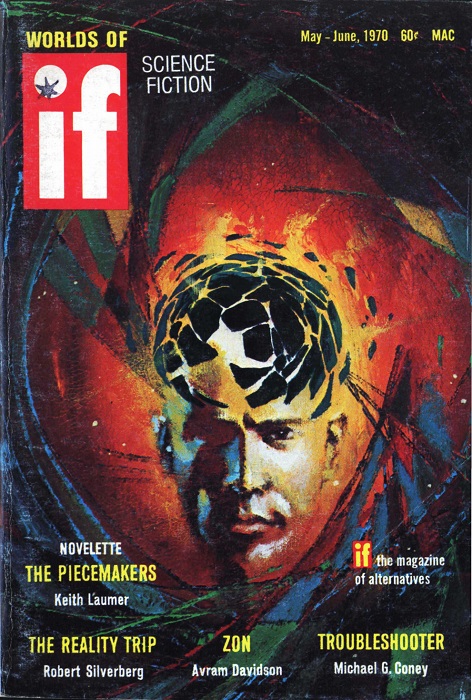 Suggested by Troubleshooter. Art by Gaughan
Suggested by Troubleshooter. Art by Gaughan![[March 2, 1970] Par for the course (April 1970 <i>IF</i>)](https://galacticjourney.org/wp-content/uploads/2025/02/IF-1970-04-Cover-476x372.jpg)
 Wire photo of the aftermath.
Wire photo of the aftermath.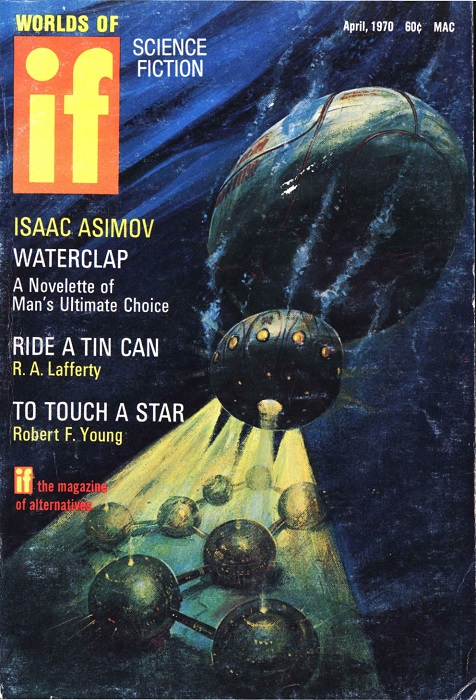 Arrival at Ocean-Deep. Art for “Waterclap” by Gaughan
Arrival at Ocean-Deep. Art for “Waterclap” by Gaughan![[February 2, 1970] Deceptive Appearances (March 1970 <i>IF</i>)](https://galacticjourney.org/wp-content/uploads/2025/01/IF-1970-03-Cover-479x372.jpg)
 The arbiter, an NCR 315.
The arbiter, an NCR 315.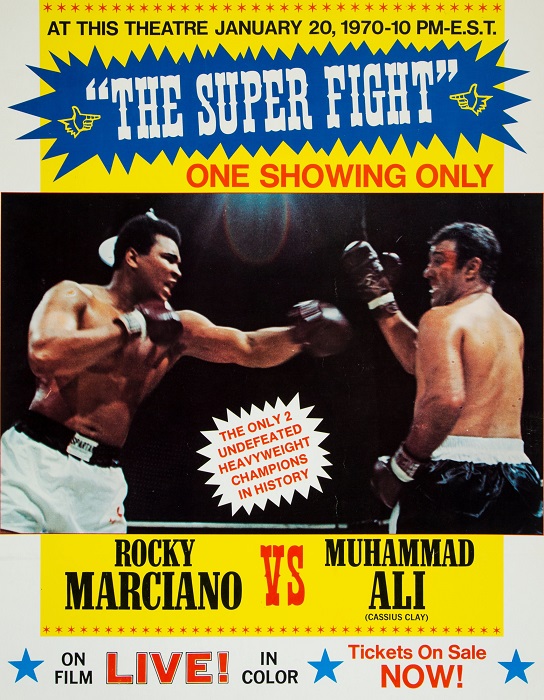 Movie poster for the event. That “LIVE!” is a little deceptive, which is something else Ali is complaining about.
Movie poster for the event. That “LIVE!” is a little deceptive, which is something else Ali is complaining about.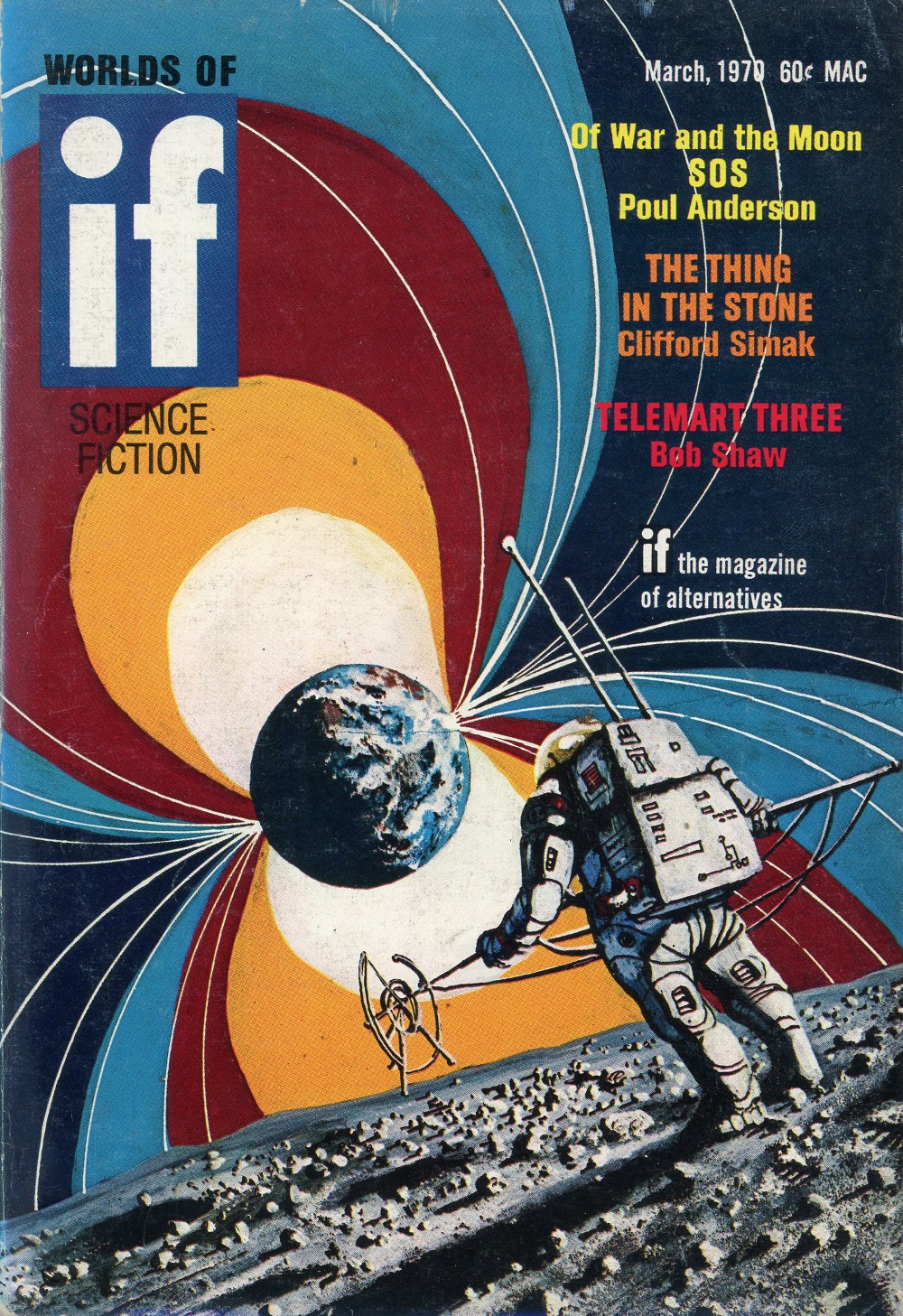 Art actually for “SOS,” rather than just suggested by. Maybe because it’s by Mike Gilbert, not the overworked Jack Gaughan.
Art actually for “SOS,” rather than just suggested by. Maybe because it’s by Mike Gilbert, not the overworked Jack Gaughan.![[January 14, 1970] Root Rot (February 1970 <i>Venture</i>)](https://galacticjourney.org/wp-content/uploads/2025/01/Venture-1970-02-Cover-483x372.jpg)
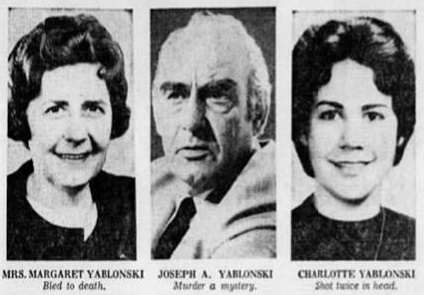
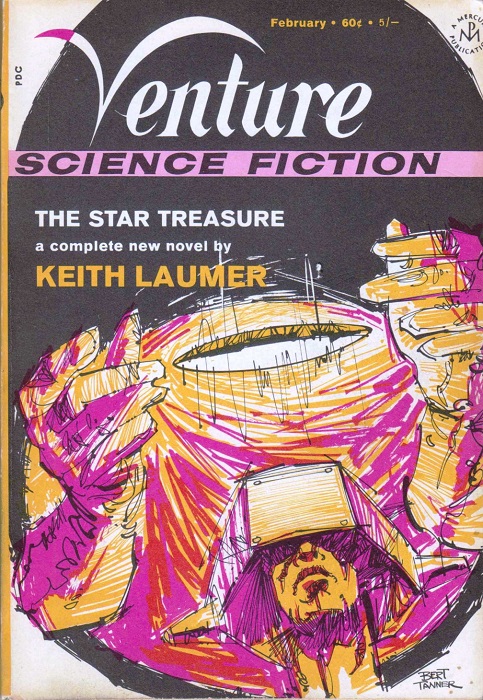 A not very representational image for Laumer’s new story. Art by Bert Tanner
A not very representational image for Laumer’s new story. Art by Bert Tanner![[January 2, 1970] Under Pressure (February 1970 <i>IF</i>)](https://galacticjourney.org/wp-content/uploads/2024/12/IF-1970-02-Cover-500x372.jpg)
 Dr. Edward D. Goldberg of the Scripps Institute of Oceanography in La Jolla, California
Dr. Edward D. Goldberg of the Scripps Institute of Oceanography in La Jolla, California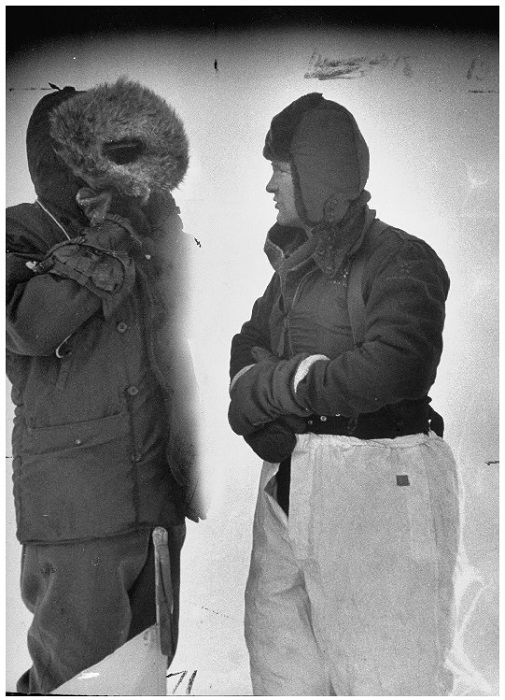 Col. Fletcher (r.) on his ice island in 1952. This was the most recent photo of him I could find.
Col. Fletcher (r.) on his ice island in 1952. This was the most recent photo of him I could find.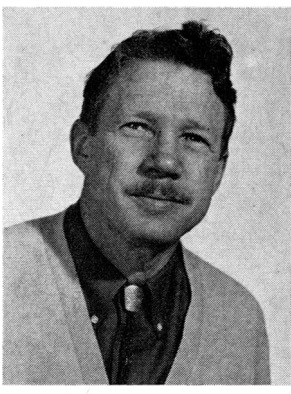 Dr. William W. Kellogg of the National Center for Atmospheric Research, in Boulder, Colorado
Dr. William W. Kellogg of the National Center for Atmospheric Research, in Boulder, Colorado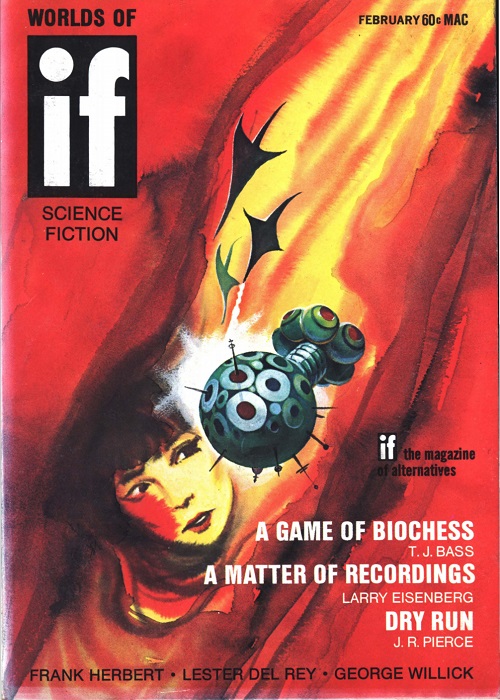 Cover by Gaughan. Supposedly suggested by Whipping Star, but it looks more like it illustrates Pressure Vessel to me.
Cover by Gaughan. Supposedly suggested by Whipping Star, but it looks more like it illustrates Pressure Vessel to me.